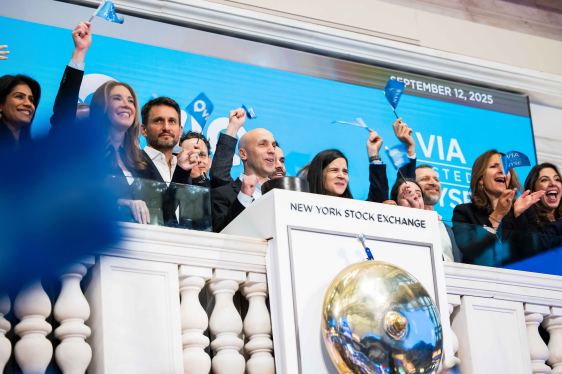Investors approached transit software startup Via’s initial public offering with caution on Friday. Shares opened below the company’s IPO price before making a modest recovery by the end of the trading day. The company, which had confidentially filed for its IPO in July, set its share price at $46, raising $492.9 million. When trading began Friday afternoon, the stock initially slipped to $44. It then inched back into positive territory, closing at just over $49. This modest gain values Via at approximately $3.9 billion at the close of its first day of trading.
Via raised approximately $328 million in its IPO, while existing shareholders sold an additional $164 million worth of stock, bringing the total deal size to nearly $493 million.
Via’s CEO, Daniel Ramot, expressed his satisfaction with the outcome. He stated that the company is extremely pleased with the result and sees it as a testament to Via’s value and durability. He extended gratitude to the team, partners, and investors who supported this milestone.
The company initially launched in 2012 by deploying its own branded shuttles that users could hail. Over time, Via refined its on-demand routing algorithm, which utilizes real-time data to direct microtransit shuttles to areas of highest demand. This technology now forms the core of its business, which it provides to 689 cities and transit agencies to power their microtransit operations.
Ramot told TechCrunch that the company plans to use the IPO proceeds to invest in growth, sales, and marketing. He also indicated a potential for future acquisitions. Ramot clarified that the funds are not primarily for operational costs but could provide an opportunity to use the capital and public stock as currency for strategic acquisitions, similar to their past purchases of Remix and CityMapper.
Via acquired Remix, a bus planning startup, in 2021 and acquired journey planning app CityMapper in 2023. Ramot expressed openness to other complementary acquisitions that align with their strategy, rather than acquisitions made solely for gaining market share.
The company’s revenue has grown roughly 30 percent year-over-year. Via told TechCrunch it expects to earn approximately $429 million in revenue for 2025, a projection based on its quarterly revenue multiplied by four. For the first six months of 2025, Via reported revenue of $205.7 million. Despite this growth, the company remains unprofitable, though its losses are shrinking. Its net loss for the first half of 2025 was $37.5 million, an improvement from a loss of $50.4 million during the same period the previous year.
Ramot stated that Via is close to achieving profitability but declined to offer specific projections. He emphasized that the company’s growth demonstrates that government customers can sustain a lucrative business. He noted that most tech companies going public are not focused on helping local government. The technology Via provides primarily benefits riders of microtransit and paratransit systems, particularly those who rely on buses for transportation. He pointed out that the company typically supports low-income individuals, people with disabilities, and students. Ramot concluded that it is rewarding to see investors support that mission.

